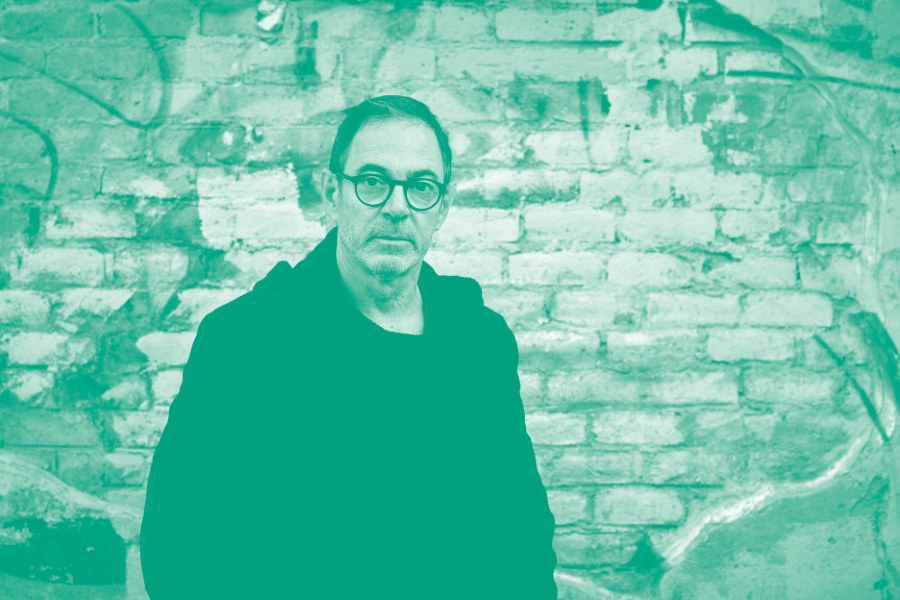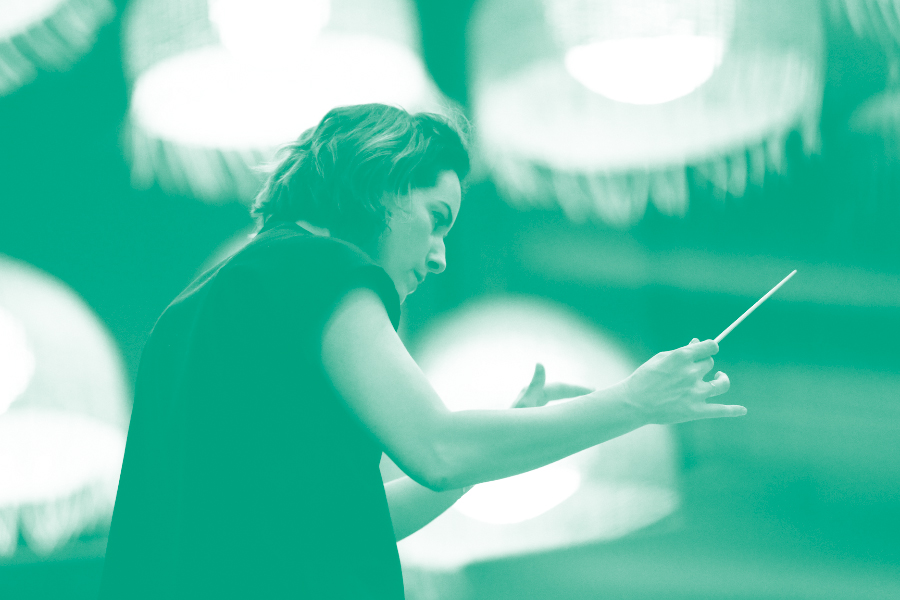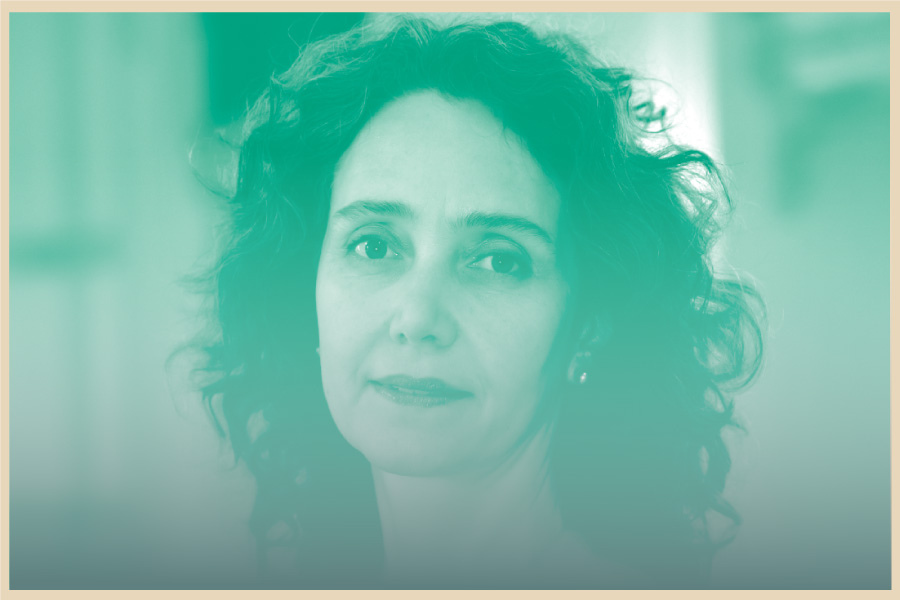Interview with Vicente Larrañaga, founder of the Novoflot Opera company

“The opera has the potential to bring together all the different artistic genres”
Established in Berlin 25 years ago, the Chilean Vicente Larrañaga debuts in Chile with Novoflot, an independent german company characterized by its experimental performances. Founded by him and Sven Holm in 2002 has already gain reputation in the European circuit.
You are in the middle of a tour with your project T-House. A proposal that represents an Asian tea house, a work in constant mutation and participatory for the audience that attends. Can you tell us details of how was the process of creating this work? Will you visit other countries in the Region?
The T-House-Tour is a project that we started in mid-2014. Its central idea originates from the reflection on new forms of creation and production of opera or musical theater, especially in the experimental field, in a cultural setting to prioritize more commercial interests and in which the support from the state was gradually disappearing. What characteristics should a musical theater in motion have and the physical structure that would shelter. With this concern we began a collaboration with the office of architects Graft of Berlin, who designed this modular system based on aluminum rods, which allows to adapt to the environment where it is located. From the beginning this flexibility will be reflected in all the stages of the Tour (the one that currently goes in its 8th version) in its scenic, dramaturgical and certainly musical content, using mainly the means that improvisation offers us. Hence, we define the T-House-Tour as a permanent “work in progress”.
For Novoflot it is the first tour outside the borders of Europe and for me as a Chilean, a great joy to have the opportunity to show the work of our company in my country. We met with a very interested, open and curious public that reacted to this proposal that for many is surely quite novel. I hope it is the beginning of a cooperation with Chile and other countries in the region to show future productions.
Working in non-traditional spaces for shows gives you the opportunity to include the public in the shows. You have worked a lot on the dimension and border between the artist-spectator. What can you tell us about the discoveries or findings you have made in these matters in the years of Novoflot’s career?
Although Novoflot has significant experience in the production of assemblies outside of traditional stages (we have set up spaces ranging from industrial warehouses to equestrian clubs or empty commercial stores), perhaps the performances that always bring us the biggest surprises are those that we carry out in the public space- of which the T-House is a paradigmatic example. This is because in the absence of the frontal spectator-artist situation as it usually occurs in closed places, the possibility of foreseeing the reaction of the public is even less. This is as diverse as the places where we have presented ourselves, and range from a passive attitude or even incomprehension to an active and enthusiastic participation of the people (as it has been the case of the presentations in Santiago and Valparaíso). To this it is added that our productions always produce stage situations that demand from the audience a certain degree of reflection and contemplation and are far from a pure “activism”. Hence, each show is a small “jump to the void”, which makes it very difficult, but at the same time fascinating.
The opera of the classical repertoire requires in most cases, cast, great orchestra, the technical infrastructure of a theatre. Independent companies have advantages for their flexibility but usually lack support and subsidies. How do you see the development of the independent world and its sustainability? What are your main challenges?
For us the existence and importance of the theatres or opera houses in a more traditional sense is beyond any doubt especially because both team members Novoflot production as our artists work parallel in these institutions and know very well How they work and the reason for their structures. In that sense we do not intend to “compete” or, on the contrary, assimilate to the production structures of the “traditional” opera, by giving it a name.
Now, although they are different realities, I think that the conditions in which points of encounter and collaboration between both forms of creation and production are occurring are increasingly occurring. In Europe and in Germany especially, an approach between both scenes is being seen: the most established institutions take advantage of the flexibility and creative freedom of the independent companies, allowing to renew their content and gaining new audiences, especially the youngest. At the same time, the independent scene accesses infrastructures and means of production that expand the possibilities of realizing their projects.

Being a Latin American living in Europe, how do you see the development of experimentation and new creation in Latin America?
I must admit that I do not know in detail the Latin American reality of experimental creation in the field of musical theater or opera. However, as a musician, I know that both composers and performers are very aware of current trends, not only in Europe, but also in other continents, such as North America or Asia. This occurs, on the one hand because the possibilities of exchange (studies abroad, internships, tours, etc.) are much more real than decades ago, but above all also due to the use of new means of communication (internet).
In this sense, the interested creator is now very well informed, regardless of the cultural reality in which he is immersed. Now, I think the difference lies in the possibilities of publicizing these creations, which are very varied from one country to another in the continent, and that depend on the programmatic lines of the broadcast centers, concert halls, theaters or houses of opera. My general impression – to a greater or lesser extent – particularly in the genre of opera (as opposed to spoken theater or contemporary dance), is that the willingness to program projects or stagings of a more experimental cut is rather minor. Programming – perhaps because of a certain fear of a supposed adverse reaction from the public or privileging the security of what has already been proven – is generally quite conservative. Personally, I think that as in any discipline, human-science, art or economics, looking for new ways and therefore experiencing, assuming even the possibility of a “failure”, is a fundamental aspect of the development of any area and should be part of the DNA of all diffusion centers and especially those that require the support of the state for their operation.
There has been a lot of discussion in Chile about the performing arts, about the traditional separation by genres and the challenge that the trend towards transdisciplinarity implies for public policies. Your projects are a reflection of the latest trends in Europe. How have they resolved these issues in Europe and Germany?
I consider that the so-called transdisciplinarity, beyond desktop discussions, is an evident reality and that it becomes much more evident in the highly connected and informed world in which we live. Starting because it is impossible – at least in a moderately free society – that the artistic creator, whenever he deems it necessary, does not use all the means of expression within his reach in the realization of his works.
In the case of the opera, from its beginnings (from Monteverdi, through Lully, Mozart, Wagner to Zimmermann or Nono), it is the “trans and genre interdisciplinary” par excellence … this characteristic is part of its essence and any theoretical attempt or public policy that tries to ignore it, I consider which denotes a serious ignorance of it.
In the particular case of Germany, opera enters into the more generic concept of “Musiktheater” (musical theater, which is far from the example of what is known here as musicals and related genres). Based on this recognition, the specific mechanisms of its promotion are established.
We have seen that in several countries in Europe there has been a decline in subsidies to theatres. From the perspective and management of an independent company, what do you think the theatres should do to replace these subsidies and not cut back their activity?
Without being any specialist, I think I am not very wrong to point out that if there is a constant in the history of culture, it is that the mechanisms of support for art (from the time of patronage to the current subsidy systems) always, be it or not, they will imply a degree of control. This is almost inevitable. Hence, beyond particular differences, from the point of resources, when these are scarce, generally in all countries one of the areas that are immediately affected is that of culture. This is based on the assumption that culture is an area rather annexed or less essential than others – and in extreme cases, a mere “decoration” of social development.
Against this almost constant – in its different graduations according to the country – I think the central point on the part of artists and institutions, should be to concentrate their efforts on their main competence: create and disseminate. Having this objective clear, it will be necessary to explore all the mechanisms that allow to give the basic conditions so that these two tasks are feasible, maintaining artistic quality standards as high as possible (subject in itself quite complex …).
In the case of theatres or opera houses, this involves trying different paths or production structures than usual, taking advantage of the “know-how” and experience acquired in years. As I pointed out above, in this aspect I see great potential for collaboration with the independent scene.
In principle, this is one of the main points of reflection of the T-House-Tour project.
In two lines, why should new generations go to see opera?
Because opera has the potential to bring together all the different artistic genres, in unique and unrepeatable coordinates of space and time. In that experience almost “exclusive” (not elitist) lies the appeal of the opera.
.
Related stories

Bajo la Lupa: Interview with Matthew Wild, Artistic Director of Cape Town Opera





